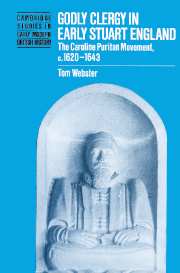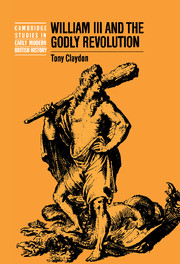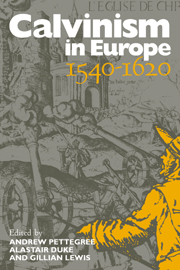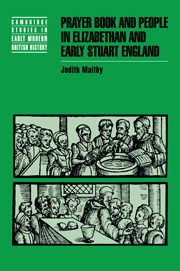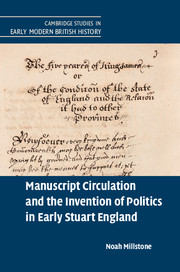Godly Clergy in Early Stuart England
This book reconsiders the existence of an early Stuart Puritan movement, and examines the ways in which Puritan clergymen encouraged greater sociability with their like-minded colleagues, both in theory and in practice, to such an extent that they came to define themselves as 'a peculiar people', a community distinct from their less faithful rivals. Their voluntary communal rituals encouraged a view of the world divided between 'us' and 'them'. This provides a context for a renewed examination of the thinking behind debates on ceremonial nonconformity and reactions to the Laudian changes of the 1630s. From this a new perspective is developed on arguments about emigration and church government, arguments that proved crucial to Parliamentarian unity during the English Civil War.
- Revises substantially all existing accounts of church government in the years preceding the English Civil War
- Offers a new and stimulating assessment of Puritan religion, combining theory and practice, and using anthropology
- Uses a wide range of new sources to bring new understanding to the role of religion before the Civil War
Reviews & endorsements
"...his conceptual framework expressed in the spirit....If significant books are those which rearrange our perception of some important matter of inquiry, then this is a significant book....Webster's title promises more than his book delivers....Webster's book is a useful, detailed account." Richard L.Greaves, Studies in Christianity and Culture
"...a new approach to the early Stuart Puritan movement." Theology Digest
"...this extremely detailed volume...will be a valued addition to any serious collection devoted to religious or Tudor-Stuart history." Sheldon Hanft, History
"...Webster's book is interesting and perceptive...." Robert J. Frankle, Journal of Church and State
"Tom Webster's Godly Clergy in Early Sturat England is an important regional study of Puritan preachers in early seventeenth-century England....a convincing study by an obviously gifted archivist and scholar of religious history." Melinda S. Zook, Journal of Modern History
Product details
October 2003Paperback
9780521521406
372 pages
236 × 161 × 30 mm
0.733kg
Available
Table of Contents
- Acknowledgments
- List of abbreviations
- Introduction
- Part I. Society, Clerical Conference and the Church of England:
- 1. Clerical education and the household seminary
- 2. Profitable conferences and the settlement of godly ministers
- 3. Fasting and prayer
- 4. Clerical associations and the Church of England
- Part II. The Godly Ministry: Piety and Practice:
- 5. The image of a godly minister
- 6. Religiosity and sociability
- Part III. 'These Uncomfortable Times': Conformity and the Godly Ministers 1628–38:
- 7. Thomas Hooker and the conformity debate
- 8. Trajectories of response to Laudianism
- 9. The ecclesiastical courts and the Essex visitation of 1631
- 10. Juxon, Wren and the implementation of Laudianism
- 11. The diocese of Peterborough: a see of conflict
- 12. The metropolitical visitation of Essex and the strategies of evasion
- Part IV. 'These Dangerous Times': The Puritan Diaspora 1631–42
- 13. John Dury and the godly ministers
- 14. Choices of suffering and flight
- 15. The 'non-separating Congregationalists' and Massachusetts
- 16. Thomas Hooker and the Amesians
- 17. Alternative ecclesiologists to 1642
- 18. Conclusion.

